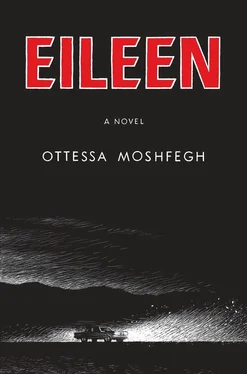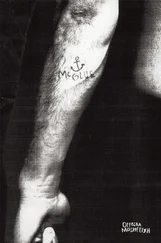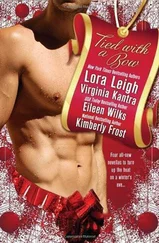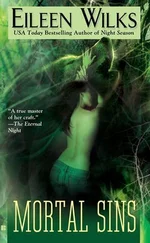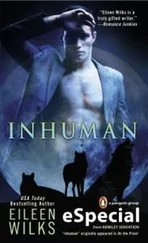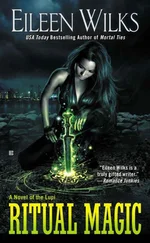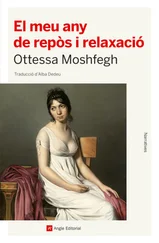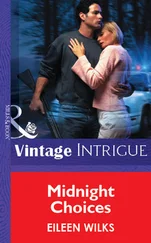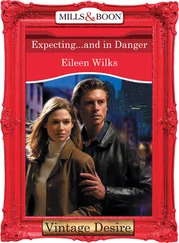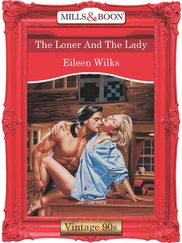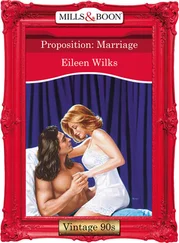When I went upstairs, I saw there was a light on in my mother’s bedroom, the door closed. Through it I heard the loud, irregular breathing of my sleeping father. My mother’s old pills were in a drawer of the bedside table, but I dared not go in there and risk waking him. A half-empty bottle of gin lay at the top of the stairs. I took it up to the attic with me. The previous summer, my father had fallen down the attic stairs one morning on his way up to wake me, yelling that there were mobsters in the cellar planning to kill us. I was barely awake when I heard him trip and thunder down the steps, splinters cracking like lightning until his body hit the landing with a low thud. I had to get dressed and help him limp to the car. I drove him to the emergency room, where they pumped him full of liquids, measured his liver, and a doctor told me the bad news, which was that if he stopped drinking he might die, and if he continued, it would surely kill him. “It’s quite a quandary,” the doctor told me, looking down at my bruised knees. “Eat a can of spinach, young lady,” he said. I went home. I did the laundry. I took a bath. The house without my father in it felt as though it belonged to strangers. All my belongings were there, but the rooms all felt so empty, unfamiliar. It irked me. Eventually my father was sent home with a cane and a bandage on his ankle, a stitch on his chin. He wore his wound proudly, cleaning it meticulously at first, then excessively, with rubbing alcohol, of which he demanded more and more. I liked the smell of it, too, and when my father wasn’t looking, I took a sip of it and nearly choked.
That night I took the gin and my purse to the attic, changed into pajamas, and slipped the gun under my pillow. Doing that felt like a prayer, or like when my first tooth fell out as a child and I placed it there before I went to sleep. I recall waking up to two shiny nickels under my pillow once. What shocked me was not the transformation from tooth to silver, but the idea that I had slept through the disturbance of my mother or father sneaking in during the night, that I had been unconscious, completely unaware, vulnerable. I remember my question that morning — what else had they done to me in my sleep? I’ve often wondered about everything I may have slept through, what arguments, what secrets. When I think back on my childhood, not much appears but the house itself, the furniture and its arrangements, the change of seasons in the backyard. There are no faces on people, only their shadows slipping out of sight as they leave the room. What I remember most about my mother is the slight weight of her in the bed the morning she died, her cold hands when I held them, perhaps for the first time since I’d been a child, the give of her shoulder when I leaned into it and cried.
I drank for a while that night, remembering. Then I put down the bottle, pulled out my reading materials. I must confess that amidst my stack of National Geographic s were hidden several issues of my father’s pornographic magazines. I pulled one of them out and leafed blithely through its pages until I fell asleep.
M y mother never packed lunches for me to take to school when I was growing up. I’d sit and stare down at my knees while the other children ate their sandwiches, my stomach empty and rumbling. As soon as I’d get home in the afternoon, I filled my belly with bread and butter, all that I could find to eat in my mother’s messy kitchen. When I was a child, Dunlop dinners around the kitchen table were hardly nourishing. Mealtimes were brief and uncomfortable. My parents only ever fought in front of Joanie and me, as though they’d needed our audience to discuss their private matters. Our mother would whine and our father would groan, throw his fork across the table, eye his Smith & Wesson, which lay next to his plate. If Joanie or I fussed, Mom would whip a rag at the floor to make a popping sound, sudden and loud, like lightning, like a firecracker. I don’t remember what they were always arguing about. I’d just chew my food fast and bring my plate to the sink and run up the stairs. Furthermore, the meals my mother cooked were awful. I didn’t eat good food until my second husband. He explained that steak was not a leathery flap of sinew burned in a frying pan, but a thick, fragrant, lovely thing, the best of which could be eaten with a dull spoon. I gained ten pounds, I think, the first month we were together. Back in X-ville, Dunlop dinners had been, at best, dry chicken, mashed potatoes from a box, canned beans, limp bacon. Christmas was little different. A store-bought sponge cake was all I remember enjoying year to year. The Dunlops were never big eaters.
But the booze always flowed freely over the holidays. Of course it did. Imagine the festivities: Mom getting the cocktail shaker down—“Let’s do this properly!”—to make drinks she called Diplomats and Stormy Weathers. Those old drinks had great names. Maggie Mays, Old Fashioneds. She made hers and Dad had me make his, Blue Blazers and highballs, with the good stuff he’d get every Christmas from his so-called friends on the force. We had a little book with different recipes. I took sips no doubt, chewed up half the bottle of maraschino cherries on my way back and forth to the kitchen, where I mixed Lee Burns, Mamie Taylors, Manhattans. Whiskey Milk Punch was my favorite since it tasted like a milkshake. I remember another one, the Morning Glory, had me cracking eggs like some kind of short order cook. Those are fun memories: records playing, fire roaring, me, offstage and dutiful, slurping the foam off a cocktail in the kitchen and still expecting something good for Christmas — a microscope, a set of paints — and Joanie entertaining in the living room, twisting her limbs in time to Elvis.
Christmas was one of the few times a year my parents had guests over. My aunt Ruth, my only aunt, took little interest in Joanie and me as children — something I’ve never understood or forgiven — and drank only gin martinis. There was gin running through the Dunlop bloodline for generations, I’m sure. Perhaps Aunt Ruth just got down to her destiny sooner than my father did. Those martinis never seemed to do her much good. She was always frowning, skin so waxy, her face so flat it almost looked wet, shiny as a puddle. Bitterly is the best way to describe the manner in which she displayed her affections. For Christmas she’d bring over something like a canned ham or a jar of peanuts, cheap scotch for Dad, maybe some chocolates for my mother. She was childless and bossy and the only one to insist we pray before we ate. My mother, drunk already, would roll her eyes, pinch me under the table, make me laugh. Mom wasn’t so bad, it seemed, at Christmas. My hopes were always high as I got into bed, drunk and full of sponge cake. Inevitably, Christmas mornings Dad would give Joanie and me each a dollar bill, wadded up and stuffed with lint from the pants pocket of his uniform. A few times our mother gave us new socks or pencils. That was all.
My father and I had silently agreed to do away with Christmas when my mother died. Only one year I did give him a gift — something cruel in its uselessness, given his predicament — a tie. Joanie would send a card if she thought of it. She’d have Christmas parties of her own, I knew, but she never invited me. I don’t hold it against her. I wasn’t much fun.
• • •
W hen I woke up on that fateful Christmas Eve, the last one of my life in X-ville, I had six hundred forty-seven dollars stashed in my jewelry box. That was quite a sum of money at the time. My life’s savings. And I had a gun. Pulling it out from under my pillow, I really felt quite cool. Its strange provenance did not elude me. My father had used it first as a prop of power in the line of duty, and then as a threat to the invisible criminals only he could see. Those phantasms, he claimed, understood he would shoot to kill. One begins to think in terms of grandiose self-conceit when there’s a gun in one’s hand, that is true. I shall use the gun to clear my path to freedom, I thought that morning, aiming at invisible obstacles. I’m embarrassed remembering how easily that thing filled me with confidence and seemed to open up a world of possibility. I thought about showing it to Rebecca that evening. Perhaps I would suggest we go out to the woods and shoot at trees. Or we could go out to the frozen lake and stand and shoot at the moon. Or to the beach, lie on our backs, make angels in the snow, shoot at the stars. Such were my romantic ideas for the evening with my new best friend.
Читать дальше
